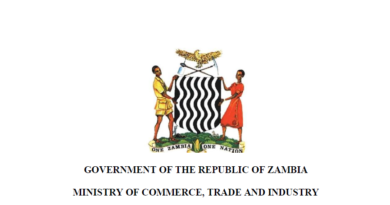200 Fruit Trees Planted as Symbol of Commitment to International Day of Forests
In Mwinilunga, Zambia, the Minister of Green Economy and Environment, Hon. Eng. Collins Nzovu MP, spearheaded a significant step towards forest conservation during the commemoration of the International Day of Forests.
At the event held in Ntambu Chiefdom, Mwinilunga District, 200 fruit trees were planted, symbolizing a commitment to community livelihood enhancement, forest restoration, and conservation efforts.
Addressing attendees, Hon. Nzovu underscored the theme of this year’s International Day of Forests, “Forests and Innovation,” emphasizing the importance of leveraging technological advancements to enhance forest management practices.
He highlighted initiatives such as satellite monitoring systems for deforestation detection and drone-based reforestation as key tools in the conservation arsenal.
The choice of Ntambu Community Forest Management Area for the commemoration was intentional, signifying its status as a beacon of hope for community-driven initiatives in forest stewardship.
This area is also a focal point for the Ecosystem Conservation and Community Livelihood Enhancement in North-Western Zambia Project, funded by the Global Environment Facility (GEF) and executed by The Nature Conservancy (TNC).
Through this project, the government of Zambia and its partners aim to address barriers to sustainable land management and biodiversity conservation in the North-Western Province.
Significant milestones have already been achieved, including the devolution of forest user rights to Community Forest Management Groups and the establishment of institutional structures for community-based natural resources management.
Furthermore, efforts to enhance agricultural production and productivity through climate-smart agricultural practices have been underway, with extensive training provided to farmers and the establishment of demonstration fields.
Chief Ntambu of the Lunda people emphasized the critical role of trees in supporting livelihoods, urging the government to enact deliberate policies for the replanting of indigenous species for future generations.
Rob Munro, Country Director of TNC Zambia, echoed the urgency of collective action in promoting ecosystem health amidst the challenges posed by climate change.
Similarly, representatives from the Food and Agricultural Organisation (FAO) emphasized the importance of collaborative efforts in promoting clean energy access, sustainable forest and farm practices, and climate-smart agricultural practices.
The event in Mwinilunga showcased Zambia’s commitment to forest conservation and sustainable development, highlighting the importance of collaboration between government, communities, and international partners in safeguarding the country’s natural resources for future generations.



